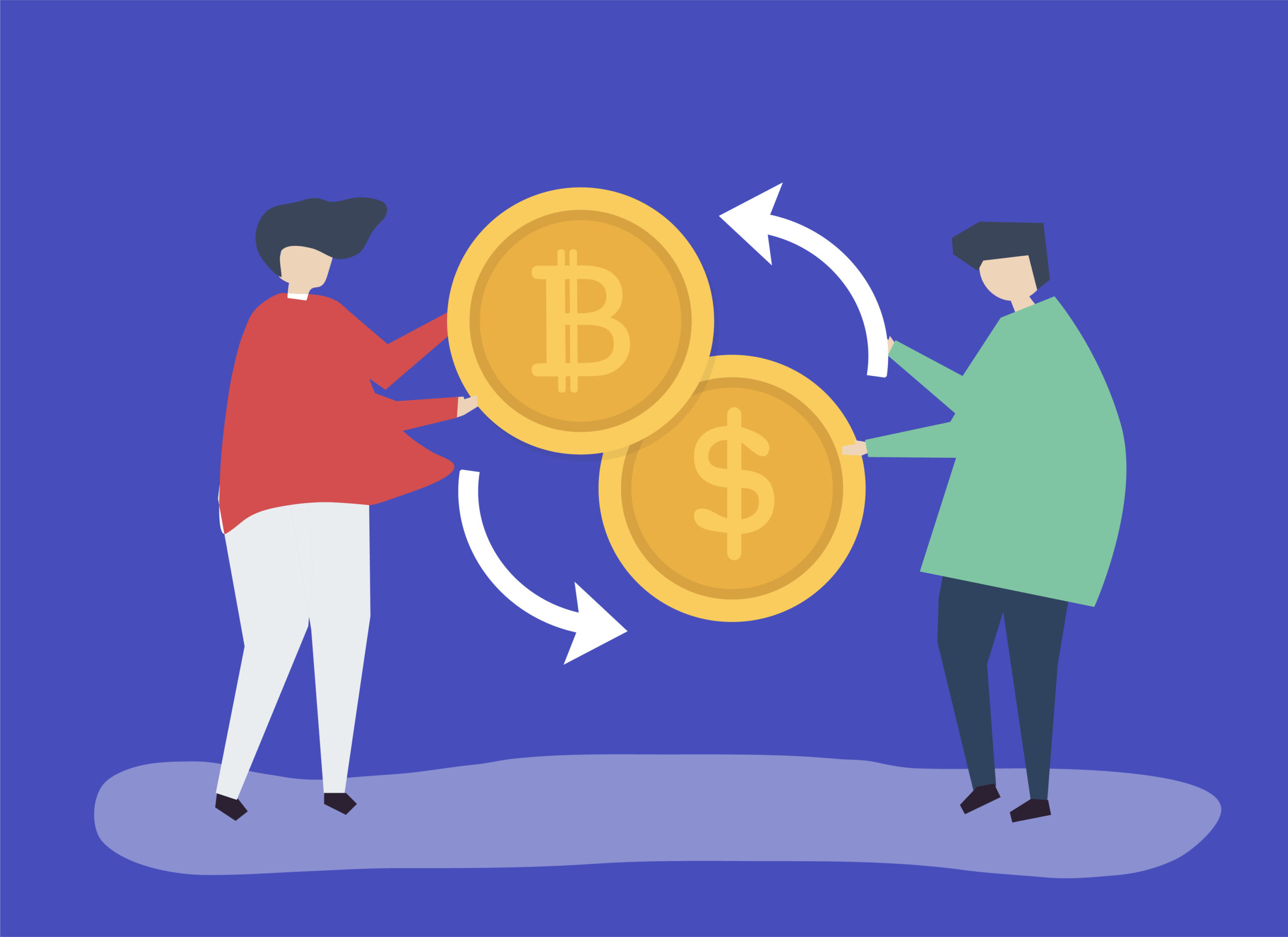As the world becomes increasingly digital, new technologies are emerging that have the potential to revolutionize the way we live and work. Two of the most exciting and rapidly evolving technologies today are artificial intelligence (AI) and blockchain.
AI refers to computer systems that can perform tasks that normally require human intelligence. This includes visual perception, speech recognition, decision-making, and language translation. On the other hand, blockchain is a decentralized, distributed ledger technology. It allows multiple parties to transact with each other without the need for a trusted intermediary.
The potential for these two technologies to complement each other is vast. Furthermore, many experts believe that AI and blockchain will shape the future of how we live and work.
So, is AI the future of blockchain? Let’s explore.

Blockchain and AI: A Powerful Combination
On the surface, AI and blockchain seem like they have very little in common. After all, blockchain is a technology that deals with data storage and transfer. Meanwhile, AI is a technology that deals with data analysis and decision-making.
Similarities Between AI and Blockchain
However, when you dig a little deeper, you’ll find that the two technologies actually have a lot in common. Both AI and blockchain are decentralized technologies that can operate autonomously. It does not need a centralized authority or human intervention.
Moreover, blockchain’s decentralized nature makes it a great fit for AI systems. It can provide a secure and transparent way for multiple AI agents to collaborate and exchange data.
For example, imagine a scenario where multiple AI agents are working together to solve a complex problem. Without blockchain, these agents would have to rely on a centralized database to exchange data and make decisions. However, with blockchain, the agents can share data and collaborate in a decentralized manner, without the need for a centralized authority.
Immutable Ledger and Network Scalability
Blockchain’s immutable ledger can provide a transparent and auditable record of all the data that has been exchanged and used by AI agents. This ensures that there is no tampering or manipulation of the data.
AI can also help to improve the performance and scalability of blockchain networks. For instance, blockchain networks can optimize their consensus mechanisms and improve their overall efficiency and speed using machine learning algorithms.
One of the key advantages of combining blockchain and AI is that they can help each other overcome some of their limitations. For instance, blockchain is an excellent tool for storing and transferring data in a decentralized and secure manner. However, it’s not very efficient when it comes to processing and analyzing that data. On the other hand, AI excels at analyzing data and making predictions, but it needs large amounts of high-quality data to do so effectively.
When combining blockchain and AI, we can overcome these limitations. Blockchain can provide AI with access to high-quality data from multiple sources. Then, AI can analyze that data and provide valuable insights while recording it on the blockchain. This creates a virtuous cycle where the blockchain provides the data that AI needs to function effectively, while AI provides the analysis and insights that can help improve the blockchain’s functionality.
Trust and Transparency
Another advantage of combining blockchain and AI is that it can help to increase trust and transparency in data-driven systems. With AI, there is often a lack of transparency regarding how decisions are made, which can lead to concerns about bias and discrimination. By recording AI decisions on the blockchain, we can increase transparency and accountability, ensuring that decisions are made based on objective and fair criteria.
Moreover, combining blockchain and AI can help to improve collaboration and coordination between different AI agents. For instance, in a decentralized system, multiple AI agents can work together to achieve a common goal, such as detecting fraud in financial transactions or optimizing supply chain logistics. By recording their interactions on the blockchain, we can ensure that all agents have access to the same data and are working towards the same goal.
Finally, combining blockchain and AI can help to improve the security and integrity of data-driven systems. With blockchain, data is stored in a decentralized and immutable ledger, which makes it much harder for hackers to tamper with or corrupt the data. AI can also be used to detect and prevent cyberattacks, ensuring that the blockchain network remains secure and stable.
Overall, the combination of blockchain and AI is a powerful one that has the potential to transform multiple industries and applications. By leveraging the strengths of each technology and addressing its limitations, we can create a more efficient, transparent, and secure world.
Real-World Examples of AI and Blockchain in Action
The potential for AI and blockchain to work together is already being realized in various industries and applications. Here are a few examples:
- Healthcare: AI and blockchain are being used to improve patient care and medical research. For instance, AI can analyze large datasets to identify patterns and trends that can inform medical research and treatment protocols. Meanwhile, blockchain can ensure the secure and transparent sharing of medical data between patients, healthcare providers, and researchers.
- Supply Chain Management: AI and blockchain are being used to improve the efficiency and transparency of supply chains. For example, AI can be used to optimize supply chain logistics and reduce waste, while blockchain can provide a secure and transparent ledger of all the transactions and movements of goods.
- Finance: AI and blockchain are being used to improve the speed and accuracy of financial transactions. For instance, AI can be used to detect fraud and identify potential risks in financial transactions, while blockchain can provide a secure and transparent ledger of all transactions.
What are the Challenges and Considerations of AI?
While the potential for AI and blockchain to work together is exciting, several challenges and considerations need to be taken into account.
Accuracy and Biases
One of the biggest challenges is ensuring that the data used by AI systems is accurate and unbiased. AI systems are only as good as the data they are trained on, and if the data is biased or incomplete, the AI system will produce biased results. Furthermore, as blockchain networks become more complex and decentralized, ensuring the accuracy and integrity of the data becomes more challenging.
Malicious Manipulation
Another challenge is the potential for AI systems to manipulate the blockchain network. As AI systems become more advanced, they may be able to manipulate the blockchain in ways that could compromise its security and integrity. Therefore, it’s essential to develop robust security measures to prevent unauthorized access and manipulation of the blockchain.
Ethical Implications
Moreover, there are concerns about the ethical implications of combining AI and blockchain. For instance, there are worries about the potential for AI systems to become too powerful and autonomous, leading to a loss of control by humans.
Additionally, there are concerns about the potential for AI systems to perpetuate inequality and discrimination, especially if the data used to train them is biased.
Accuracy and Integrity
One of the biggest challenges is ensuring the accuracy and integrity of the data used by AI systems. AI algorithms are only as good as the data they have, and if that data is inaccurate or biased, the AI will produce flawed results. Therefore, it’s essential to ensure that the data in AI systems are of high quality and free from bias wth representative of the real-world context.
Security Issues
Another challenge is developing robust security measures to prevent unauthorized access and manipulation of the blockchain. As mentioned earlier, combining AI and blockchain could potentially make the blockchain more vulnerable to attacks, as AI systems become more advanced and capable of manipulating the network. Therefore, it’s crucial to develop robust security measures that can protect the blockchain from cyberattacks and prevent unauthorized access.
Moreover, there are ethical considerations related to the use of AI and blockchain. For instance, there are concerns about the potential for AI systems to become too powerful and autonomous. This might potentially make humans lose control. Additionally, there are concerns about the potential for AI systems to perpetuate inequality and discrimination, especially if the data used to train them is biased.
Interoperability and Standardization
Another challenge is the need for interoperability and standardization in the blockchain and AI ecosystems. Currently, there is a lack of interoperability and standardization between different blockchain networks and AI platforms, making it challenging to develop seamless and integrated systems that can work across different platforms and networks.
Lacking Education and Awareness
Finally, there is a need for education and awareness regarding the benefits and risks of combining AI and blockchain. Many stakeholders in different industries may not fully understand the potential of these technologies, nor the challenges and considerations that need to be taken into account when integrating them. Therefore, there is a need for education and awareness programs to help stakeholders make informed decisions about how to use AI and blockchain technologies effectively and responsibly.
In summary, the combination of AI and blockchain has the potential to transform multiple industries and applications. Unfortunately, we must deal with some challenges and considerations. These include ensuring the accuracy and integrity of data and developing robust security measures. We will also need to address ethical considerations, and promote interoperability and standardization while increasing education and awareness. By addressing these challenges and considerations, we can harness the full potential of these transformative technologies to create a better world for all.
Final Thoughts
In conclusion, the combination of AI and blockchain has the potential to transform multiple industries and applications. It can range from healthcare and finance to supply chain management and beyond. The benefits of combining these two technologies include improved efficiency, transparency, and security, among others.
However, we must take some challenges and considerations into account. We need to ensure the accuracy and integrity of the data AI systems use. We also need to develop robust security measures to prevent unauthorized access and manipulation of the blockchain. Potential misuse of AI Systems from ethical concerns will also become crucial.
Therefore, while AI is undoubtedly an essential component of the future of blockchain, it’s essential to approach its integration with caution and a focus on ethical considerations. Only then can we harness the full potential of these two transformative technologies to create a better world for all.
Personal Note From MEXC Team
Check out our MEXC trading page and find out what we have to offer! You can learn more about crypto industry news. There are also a ton of interesting articles to get you up to speed with the crypto world. Lastly, join our MEXC Creators project and share your opinion about everything crypto! Happy trading!
Join MEXC and Start Trading Today!


